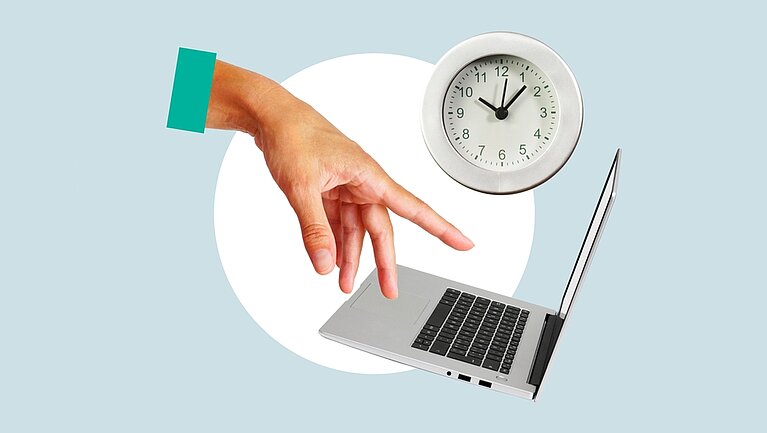Have you ever had a long to-do list for the day, but at the end of the day you only managed to get a fraction of it done because you didn't have enough time? Again and again, something came up or maybe you even let yourself be distracted by something unimportant. In order to focus on the essentials and to work productively, the right time management is of great importance.
Even though the term time management is widely used: it is not entirely correct. Because the resource time cannot be managed. It is a "constant. We all have only 24 hours a day at our disposal, but it is possible to manage ourselves. It is possible, however, to manage oneself, i.e. to organize oneself in such a way that projects and tasks can be completed in the limited time available. Therefore, the terms self-management or self-organization would actually be much more appropriate.
Good time management can help you to ...
- organize and prioritize tasks.
- become more productive and reduce stress at the same time.
- break bad habits like procrastination.
- draw clearer boundaries between work and personal life.
Dos: Tips to help you make better use of your time:
Eliminate distractions
You're in the middle of a high-concentration period and suddenly the screen of your smartphone lights up - in all likelihood you'll look to see who's been texting and you'll be distracted not just for the moment, but permanently. Figure out what your distractors are. There may be other factors, such as work or personal problems, that weigh heavily on our minds and cause us to be unfocused and our thoughts to wander.
Structure and plan your workday
Break up large projects into several small subtasks. This reduces the mental hurdle to actually start working and helps you stay on top of things. Prioritize your tasks every morning and plan your day in advance - e.g. with the 90-90-1 rule or the Pomodoro technique.
Take regular breaks
Despite all the planning and productivity, it's also important to take well-deserved breaks to unwind and recharge your batteries. Whether it's a walk in the fresh air, a coffee break with colleagues - interrupt your concentrated work regularly and get a motivational push to continue working on your goals after the short break.
Stop multitasking
Multitasking doesn't make you productive, nor does it work. If you try to do ten tasks at once, you won't do any of them right and will ultimately take longer. It's also proven to increase the error rate. Pure poison for any productivity. The antidote: Singletasking - do one task at a time.
Dont's: Avoid these things to work more efficiently
Wasting time
We often lack the motivation to approach a task with vigor. Instead of turning to something else and using our time wisely, we waste our time on a task that we end up having to put twice as much work into. This prevents us from good time management.
Approaching work without motivation
It is not uncommon for us to approach tasks unmotivated and listless, and as a result we end up taking much longer to complete them than is actually necessary. A good time management helps immensely!
Losing the overview
Appointments here, a few phone calls there and the mails still have to be answered! Without a fixed schedule, you will soon lose track of your appointments.
Sticking to inappropriate routines
Habits help to cope with increased stress. But in the long run, these unhealthy routines can cause us to unjustifiably neglect more efficient ways to manage our daily lives.












